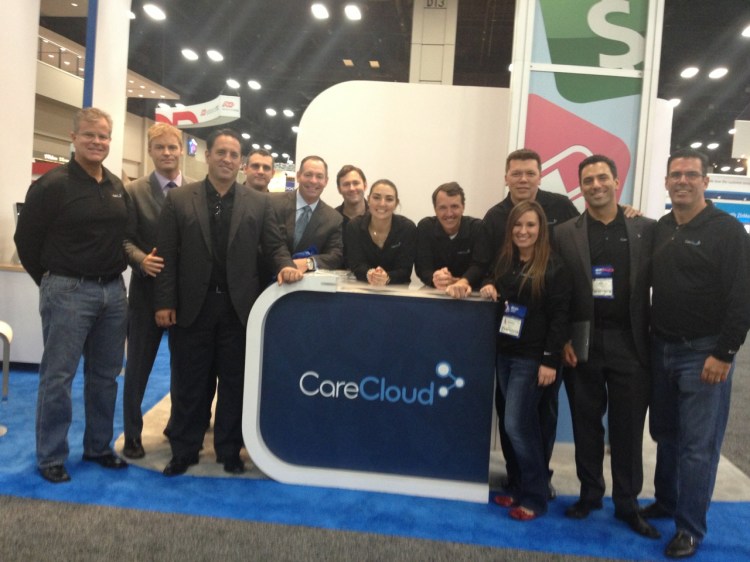CareCloud just added $9 million in venture funding to its enormous second round, making the startup $30 million richer in a matter of months.
Investors are keen to put their dollars behind the Boston- and Miami-based startup, as it’s one of a handful of digital health ventures with the potential to make it big as health care moves online and to the cloud.
“Physician practices are fragmented — and CareCloud has an opportunity to grow its market fast,” said Jeffrey Diehl from Adams Street Partners, the firm that just invested in the round.
Editor’s note: Our upcoming CloudBeat conference, Sept. 9-Sept. 10 in San Francisco, will be tackling revolutionary cases of enterprise cloud usage. Register today!
CareCloud develops technology for hospitals and health clinics, making it easier for physicians to collaborate with each other and access sensitive patient records in the cloud via devices like smartphones and iPads.
The electronic medical record market is estimated to be worth between $6 billion and $10 billion — it’s a huge opportunity for CareCloud, which reported that it has tripled its revenues in 2012. Customer acquisition has never looked so good in this sector, as physicians are currently being compensated for moving their records online, according to Meaningful Use statues.
Vendors are investing heavily to ensure they are certified for Meaningful Use.
CareCloud is battling a number of younger players, but it positions itself as an alternative to legacy vendors like Allscripts, Cerner, Siemens, Epic, McKesson, and GE. It is proving to be a particularly popular option for physicians operating in small clinics.
Albert Santalo, the founder and CEO of CareCloud, likens the older players to the “walking dead … it’s a fight among dinosaurs.”
Still, the biggest challenge for CareCloud is the competition. There are north of 300 electronic health record vendors in the market today — this number swelled with the passing of the HITECH Act in 2009, which was conceived to promote the adoption and meaningful use of health IT.
In future, many health experts believe this market will begin to consolidate, likely with winners and losers coming out of this. CareCloud hopes it will be one of the last vendors standing, and the founders are fond of saying that they are building the “single login for health care.”
“We felt on balance that the addressable market will be large even if there are fits and starts associated with consolidation,” said Diehl.
In addition, CareCloud is diversifying its product offerings — it also provides medical billing software to its customers, which helps to streamline budgeting and operations. Currently, over $2 billion in annualized accounts receivables flows through its system. Santalo told me they will also focus on building out the platform, and encouraging third-party developers to build supporting health apps.
Santalo anticipates sky-rocketing growth in 2014, when reforms under the Affordable Care Act come into effect.
“This stuff isn’t particularly sexy, but at the end of the day, reimbursement models for health care will change and we’ll see more collaboration between physicians on mobile,” he said.
Santalo plans to put the $30 million to work by building out the research and development team to take advantage of health care reform.
“The future is smart devices in the home — it’s the devices that we wear, whether that’s sensors or medical devices,” he said. “All that data will need to be stored somewhere and matched up against the health record — and that’s where we will come in.”


